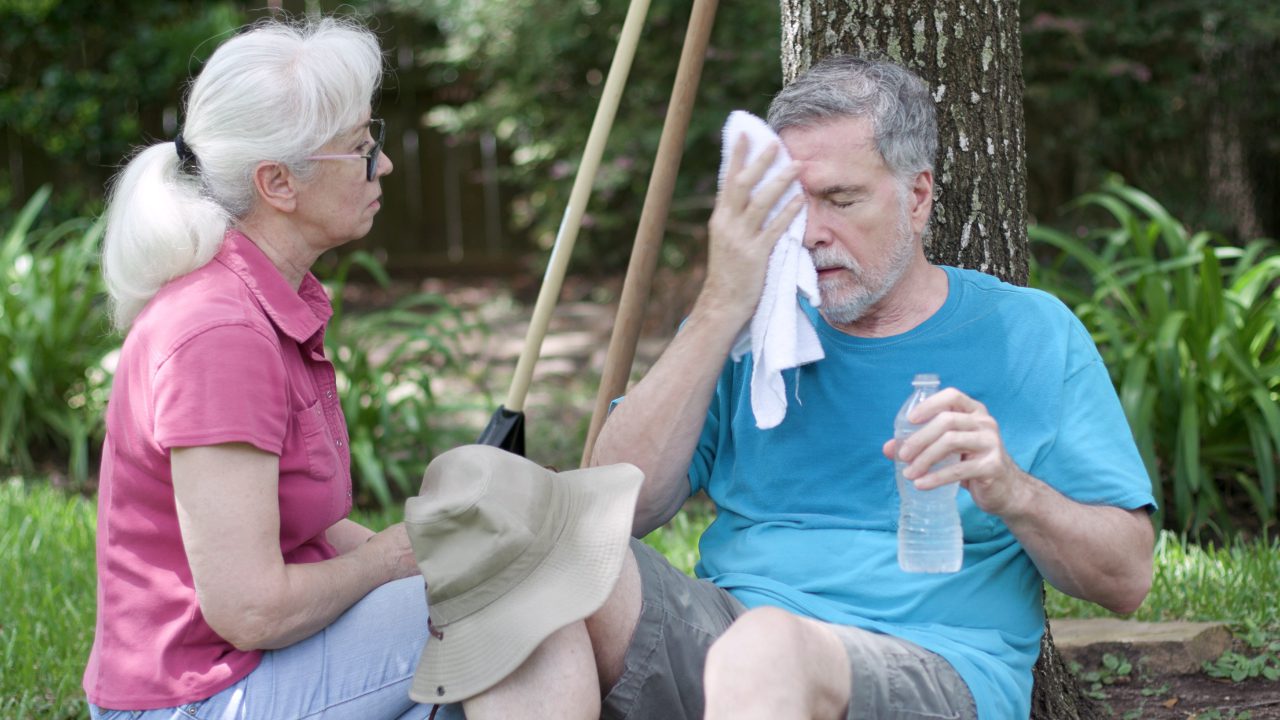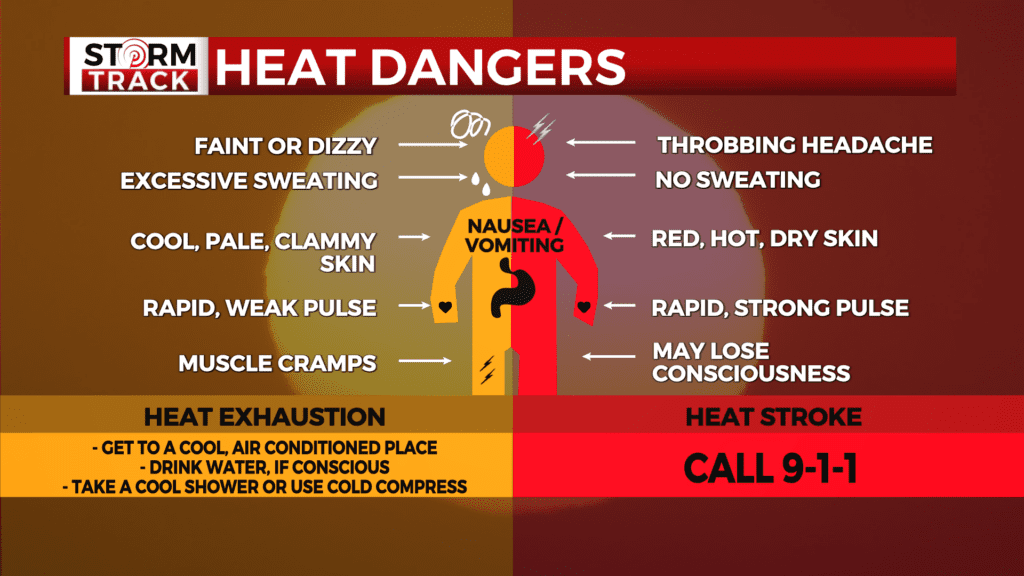Are you overheating? Know what to look for

Heat Awareness (Storyblocks)
The extreme heat that has been pummeling the southern United States is moving to our region. The warm temperatures and high humidity will build each day, peaking on Wednesday. Our high temperatures will reach into the 90s with heat indices for southern parts of the Northland approaching 100.

Prolonged exposure to high temperatures, particularly when there is high humidity and strenuous physical activity, can lead to heat illnesses. There are three heat-related illnesses to be mindful of: Heat cramps, heat exhaustion, and the most severe, heat stroke.
With our daily temperatures and high humidity this week, the public should be aware of the warning signs for heat illnesses.
If heat exhaustion isn’t treated, it can lead to heat stroke.
Heat Exhaustion Symptoms:
- Feeling faint or dizzy
- Excessive sweating
- Cold, pale and/or clammy skin
- A fast but weak pulse
- Nausea and/or vomiting
- Muscle cramps
According to the Mayo Clinic, symptoms of heat exhaustion can start suddenly or progress over time. If you have any of these symptoms: Immediately stop what you are doing and move inside or to a cooler place. Sip cool water or sports drinks. Loosen any tight clothing. If symptoms get worse or they do not improve within one hour, seek medical attention.
The Mayo Clinic says if you are with someone who has heat exhaustion, and they become confused, lose consciousness, or are unable to drink – seek medical attention.
Heat stroke is the most severe form of heat illness and is life-threatening. Johns Hopkins says heat stroke is a result of long, extreme exposure to the sun and can develop rapidly.
Heat Stroke Symptoms:
- Headache
- High external temperature (103°F or higher)
- Rapid and strong pulse
- Nausea and/or vomiting
- No sweating
- Hot and dry skin
- Loss of consciousness
If you have any of these symptoms: Immediately stop what you are doing and call 9-1-1. Move to a cool location and begin to lower the body temperatures with either cool clothes or a bath. Do not give or take any fluids.
The Storm Track Weather team has additional information with the Severe Weather Guide.